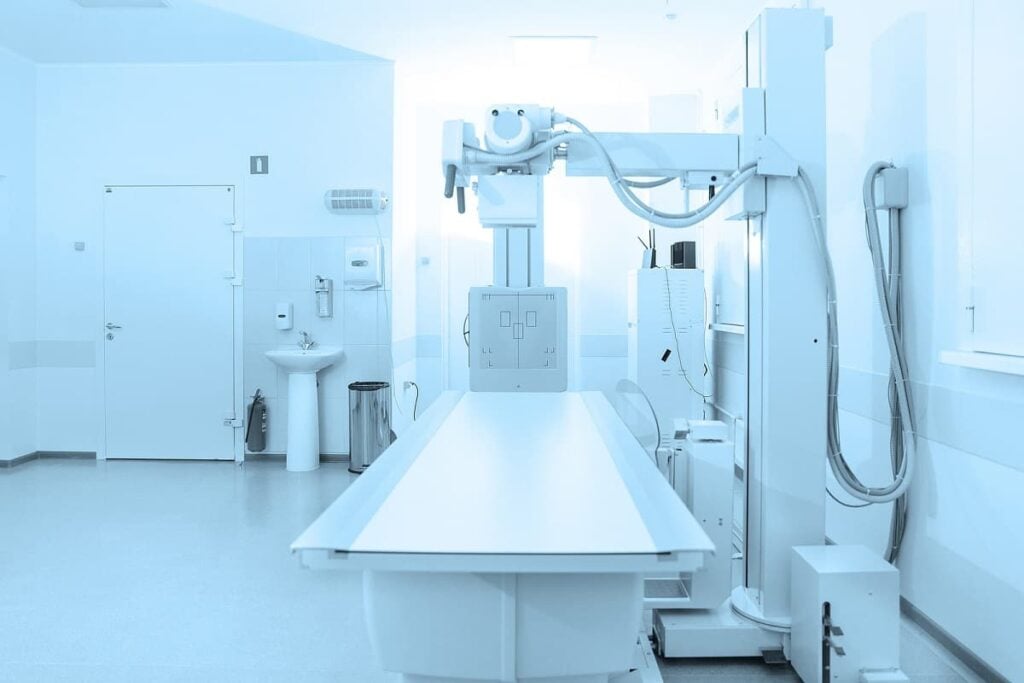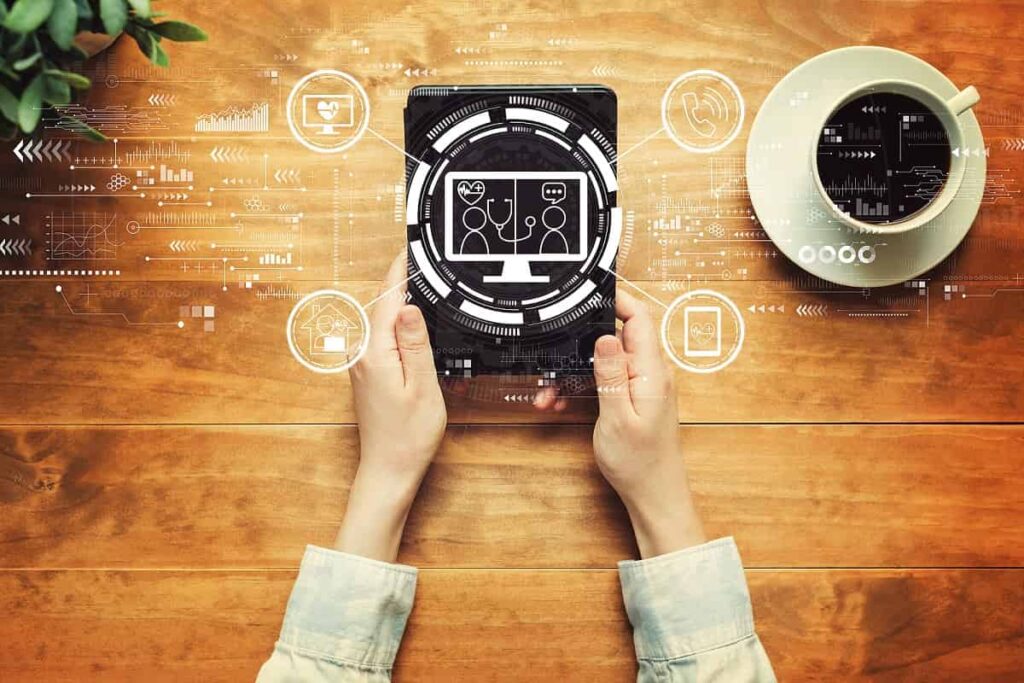AI Startup AliveCor Delivers Remote Cardiac Monitoring
Table of contents
Table of contents

Let’s face it: Most of us aren’t big fans of going to the doctor. It’s usually the last option after you’ve started pissing blood or got a really painful hangnail. In the Age of Rona, some people would rather die than seek medical help. Literally. As early as April, emergency room visits dropped 42% across the country, according to a study by the U.S. Centers for Disease Control and Prevention. And a poll commissioned by the American Heart Association found that about 25% of people experiencing a heart attack or stroke would rather stay home and eat Cheetos than go to the hospital.
The jitters over the coronavirus mean more people are ready to embrace digital healthcare. We’ve written quite a bit recently about the remote connectivity investment thesis, especially for investing in telemedicine. Another type of telehealth service that’s also come to the forefront is the use of AI for remotely monitoring patients using wearables or other sensors. An AI healthcare startup that doesn’t seem to be missing a beat in that market is Silicon Valley-based AliveCor and its technology that turns smartphones into clinical-grade electrocardiogram (ECG) recorders.
AI for Heart Health
Founded in 2010, AliveCor came across our radar in 2017 for a round-up of mobile health startups. Since then, the company has more than tripled its funding to $154.3 million. The latest round was just a couple of days ago when previous investors like Khosla Ventures and Qualcomm (QCOM) chipped in $65 million to help grow the company’s remote cardiology platform. Another repeat investor is Omron (6645.T), a Japanese electronics manufacturer that specializes in medical equipment. It also happens to be a partner with AliveCor on a couple of smart blood pressure devices, one of which also incorporates ECG data.
FDA-Approved Algorithms
The Silicon Valley company is doing for ECGs what Butterfly Network did for ultrasounds by using machine learning algorithms to process and interpret heart rhythms using a simple interface device not much bigger than a thumb drive and a smartphone:

The algorithms can detect several common arrhythmias, or irregular heartbeats, with 98% sensitivity. The AI-based technology has earned several regulatory approvals from the U.S. Food and Drug Administration (FDA), including for its newest and most advanced ECG device, KardiaMobile 6L. It seems crazy simple to use that even an MBA could do it unsupervised: The user puts his or her thumbs on each of the two top electrodes, and places the bottom electrode on the left knee or ankle. This formation, known in cardiology as the Bermuda Einthoven Triangle, allows cardiologists to view electrical activity in the heart from six perspectives or “leads.”

A Mayo Clinic study suggested data from the KardiaMobile 6L was comparable to a traditional 12-lead ECG. It retails for $149, while the one-lead model is currently on sale for $89.
AliveCor added a consumer subscription to its offerings called KardiaCare for $99 that goes beyond the basics of the app with regular reviews by trained cardiologists, monthly reports, and other features:

Of course, there’s a free KardiaPro version for doctors that consists of a web-based portal to track and analyze patient data from its KardiaMobile ECGs and the blood pressure-monitoring devices developed in collaboration with Omron.
The Business Case
We probably don’t need to make the business case for a reliable and remote ECG device in a country where heart disease is the leading cause of death for men and women, killing 665,000 Americans every year. Heart problems cost the United States more than $200 billion annually from healthcare services, medicines, and lost productivity.

Instead, we’ll let some scientists who published a randomized, controlled trial in the Lancet’s EClinicalMedicine journal on KardiaMobile make the case. The researchers found that ECGs taken with KardiaMobile of patients after being discharged allowed doctors to diagnose 56% percent of patients in 9.5 days on average. Standard care seems pretty substandard in comparison where 10% were diagnosed in an average of 43 days. The addendum that caught our attention is that the cost per-treated patient using KardiaMobile could also be reduced by nearly $1,200, according to AliveCor. Another plus: patients found KardiaMobile easy to use, and other studies have suggested at least three-quarters of people are cool with using a smartphone to monitor their health and surf porn.
Conclusion
While AliveCor is making good scientific and business cases for its technology, the startup is entering an increasingly competitive market, especially in wearable watches. For instance, Apple (APPL) introduced its Watch Series 4 with an FDA-approved medical-grade ECG in 2018. However, one can see where a device like KardiaMobile would be used by those with ongoing heart conditions like irregular heartbeats for regular remote monitoring versus weekend warriors who just want to see how low their pulse can go. AliveCor is making moves that count, announcing just a couple of months ago it had introduced KardiaMobile to India and its 54 million people who suffer from cardiovascular disease.
Certainly, other AI life sciences companies that focus on cardiac health are seeing success. iRhythm Technologies (IRTC), which has developed a new type of ECG monitor that uses AI to interpret results, has been posting impressive growth numbers over the last few years. A San Francisco startup, Caption Health, has developed an AI platform that enables anyone, even an MBA (though preferably a nurse), to perform ultrasounds to measure important cardiac functions. While Caption Health is designed to be used at the point of care, iRhythm is for remote patient monitoring. The latter has to be considered at least an indirect competitor to AliveCor, even though iRhythm is not consumer-facing. Yet.
Sign up to our newsletter to get more of our great research delivered straight to your inbox!
Nanalyze Weekly includes useful insights written by our team of underpaid MBAs, research on new disruptive technology stocks flying under the radar, and summaries of our recent research. Always 100% free.















